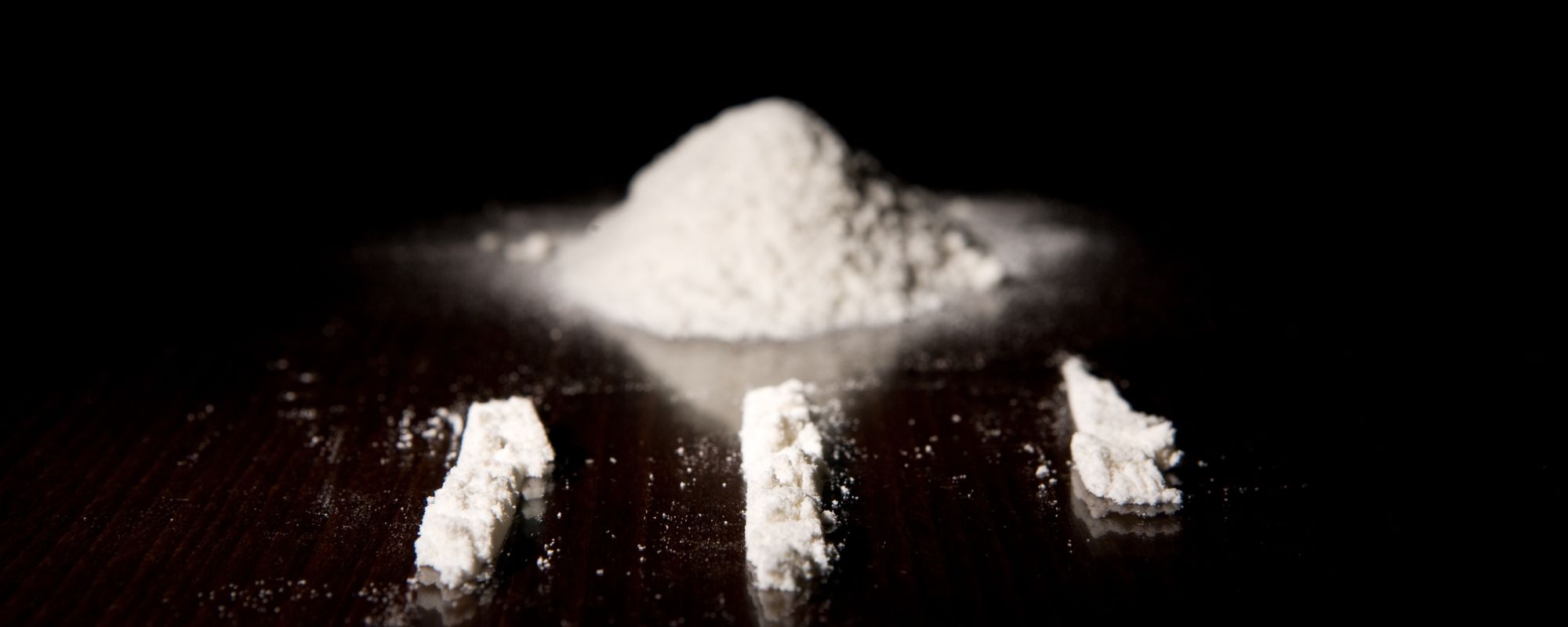If you’ve been thinking about cutting back or quitting drinking, it takes a great deal of self-awareness — that alcohol has begun to take more from your life than it’s been giving. Maybe you’ve started to notice how alcohol is affecting your health, your mood, or your relationships. Maybe work or school has suffered. Everyone and everything else takes a backseat to drinking, which has begun to take a toll. When that happens, some may try to undergo alcohol detox at home when getting help from a treatment center is a better option.
It takes bravery to know when it’s time to make a change in your life, for you and the people around you. But how do you stop drinking? The idea of quitting on your own, cold turkey, might seem like an easy option: just stop drinking altogether and stay away from alcohol. It sounds seamless, but the process of quitting isn’t always that simple, especially if you’ve begun to develop a dependency on alcohol.
The fact is that alcohol has a powerful effect on the body, and withdrawal symptoms can become more difficult to manage than one might initially imagine. Detoxing from alcohol after stopping drinking is a process your body goes through, learning to live without alcohol.
Is alcohol detox at home safe? Let’s look at the benefits and risks of doing it on your own and how detoxing in the professional, caring hands of an alcoholism treatment provider can help you make the best choice for your recovery.
What Is Alcohol Detox?
Detoxification, or detox, is the process your body goes through when it clears an addictive substance, like alcohol, from your system. Alcohol can remain detectable in the body from 12 to 130 hours (that’s over five days) once a person has stopped drinking.
For someone who has been binge drinking or drinking heavily and chronically, detox is the start of physically and emotionally adjusting as your body learns to function free of alcohol. But detox isn’t just about avoiding cravings; the goal is to safely manage any withdrawal symptoms that may arise. (A person who borders on alcohol use vs. someone eligible for an alcohol use disorder diagnosis may experience withdrawal ranging from mild discomfort to more serious health concerns, for example.)
Why Is Alcohol Detox Important?
One drink affects your body and brain quickly. Once it’s absorbed through the lining of your stomach, it spreads through the bloodstream, reaching your brain and liver within minutes.
But over time, chronic, daily drinking can make lasting, adverse changes in how your brain and body work together. “Alcohol interferes with the brain’s communication pathways and can affect the way the brain looks and works,” notes the National Institute on Alcohol Abuse and Alcoholism (NIAAA). “Alcohol makes it harder for the brain areas controlling balance, memory, speech, and judgment.”
Heavy drinking, says the NIAAA, causes alterations to the neurons in your brain, leading, in many cases, to the development of alcohol use disorder, where you cannot function without alcohol. “As individuals continue to drink alcohol over time, progressive changes can occur in the structure and function of their brains,” says the study. “These changes can compromise brain function and drive the transition from controlled, occasional use to chronic misuse, which can be difficult to control.”
These enduring impacts that drinking can have on your body and brain — both neurologically and psychologically — make it important to give your body time to adjust to the sudden absence of alcohol.
It’s during this adjustment period — essentially resetting yourself to before you began drinking — that withdrawal symptoms can begin, your body’s response to changes in brain chemistry. Studies show that up to 50% of people with a history of long-term, heavy alcohol use will experience some kind of mild withdrawal within 24 hours of abstaining. The worse one’s drinking, the more intense the withdrawal may potentially be.
When Does Someone Need Alcohol Detox?
The need for alcohol detox becomes readily apparent when drinking starts to feel less like a choice and more like a necessity. When you need a drink versus wanting a drink, you may be developing an addiction. And when it starts to interfere with your day-to-day life, it may be time to reconsider your relationship with alcohol.
One clear sign that detox from alcohol becomes indispensable is when drinking becomes problematic or repeated attempts to quit on your own have failed. Many people want to stop drinking but find themselves unable to break the cycle of cravings, withdrawal symptoms, or emotional triggers that lead them back to drinking.
Even if your drinking doesn’t seem severe, having an undiagnosed alcohol use disorder can make someone downplay the severity of their addiction, brushing off drinking as something they can stop at any time. This is why detox from alcohol, the very first step in getting sober, especially before entering treatment for alcohol use disorder, is necessary. It’s about affording you a clean slate to start formal treatment without any trace of a substance in your system.
Alcohol Abuse Statistics
Alcohol use disorder is the most common substance use disorder in the U.S. — not surprising given that alcohol is legal, accessible, and readily available for anyone to purchase.
Alcohol abuse affects millions of people every day:
- 28.9 million people in the U.S. had alcohol use disorder in 2023, according to the NIAAA, including:
- 16.8 males
- 12 million females
- Nearly 141,000 Americans die from the effects of alcohol annually, with alcoholic liver disease the leading killer at 19.1% of all alcohol-related deaths.
- There are 488 deaths each day from excessive alcohol abuse, notes the Centers for Disease Control and Prevention — 20 people every hour.
- During the COVID-19 lockdowns, about 60% of Americans increased their alcohol consumption. For mental health treatment, two common options often come to mind: inpatient treatment, where individuals reside full-time at a rehab facility, and outpatient care, which involves attending scheduled therapy and treatment sessions while living at home. IOP programs can be a wonderful middle ground between inpatient and outpatient care that offers more flexibility in recovery.
Reach Out for Help With Addiction
Are you struggling with addiction?
Royal Life Centers at Chapter 5 is here to help you recover. Because we care.
What Happens When Someone Undergoes Alcohol Detox?
Think of detox as the initial phase of recovery from alcohol use disorder. Only when you stop drinking can you begin to heal from the effects of drinking, whether it’s short- or long-term.
Detox can be uncomfortable as your system acclimates itself to the lack of alcohol when it becomes tolerant or even dependent on it. It’s at this point you’ll begin to experience withdrawal symptoms. These are unavoidable since it’s your body’s way of reacting to not being fed an addictive substance any longer.
Alcohol Withdrawal Symptoms
Withdrawal symptoms are one of the most challenging parts of detox, with most symptoms, according to the Cleveland Clinic, beginning from six to 24 hours after stopping or decreasing drinking. Some symptoms can include:
- Headaches (similar to those felt during a hangover)
- Anxiety, irritability, or feelings of nervousness
- Nausea (upset stomach) and vomiting
- Excessive sweating
- Insomnia (an inability to sleep)
- Tremors or shaking
In more severe cases, alcohol withdrawal can lead to dangerous complications like seizures (12 hours after your last drink) or a condition called delirium tremens (DTs) (after 48 hours), which can cause confusion, rapid heartbeat, and hallucinations.
How Long Is Alcohol Detox?
The length of alcohol detox varies from person to person and depends on several factors, like how much and for how long you’ve been drinking. For most people, physical withdrawal symptoms peak within 24 to 72 hours from your last drink. After that, the worst symptoms begin to subside and lessen, although emotional effects and cravings may linger.
In a professional detox setting, Royal Life Centers’ Chapter 5 facility offers two detox options:
- A milder, 4-day stabilization detox that may include comfort medication
- A comprehensive 8-day medical detox for people who need help through the full withdrawal course, with a medical taper
Is Alcohol Detox at Home Safe?
Detoxing from alcohol at home sounds like a comfortable option — what better way than to basically hunker down and see yourself through in your own safe space?
Healthcare experts maintain that if you have a healthy support network and stable housing, you don’t have any other addictions and aren’t drinking or using other substances, and you have good mental health; you may be a good candidate for safe alcohol detox at home.
However, the truth is that alcohol detox at home can prove risky, especially if you have a history of drinking heavily. Without medical supervision, it’s hard to predict how your body will respond to withdrawal. Plus, complications can arise quickly.
One of the biggest risks of detoxing from alcohol at home is not being able to manage severe withdrawal symptoms. Like those we mentioned earlier (e.g., seizures and DTs), they can prove life-threatening — even milder symptoms can take a serious turn without proper care in place.
While it’s true that home alcohol detox remedies or home alcohol withdrawal treatments, such as drinking plenty of water (no alcohol), keeping yourself nourished and well fed, or using over-the-counter medications may assuage and help manage alcohol withdrawal at home, they’re not a viable substitute for proper medical care. They won’t address the underlying risks of withdrawal, giving a false sense of security.
Professional Medical Detox for Alcohol Addiction
If the time has come to safely detox from alcohol, nothing compares to the compassionate, complete, and comprehensive care that a professional detox facility provides. Unlike attempting a home detox, a medical detox program offers 24/7 care for men struggling with alcohol abuse. Our Chapter 5 center in Prescott, AZ, is a safe environment where withdrawal symptoms can be monitored, mitigated, and managed with maximum comfort.
Here are some of the benefits of medical detox:
Individualized Treatment Plans
Alcohol addiction can be a different experience for two different people, even when the hallmark signs and symptoms may resemble each other, instilling a need for tailored treatment plans for your nuanced, unique needs. From the first step, you’ll work hand-in-hand with a case manager for a thorough assessment of your medical history, the severity of your alcohol use, and any co-occurring mental health conditions. Based on this evaluation, a personalized plan to address your specific needs during the detox process is drafted and followed through to the end of your recovery period.
Expert Medical Staff
From medical doctors to registered nurses, licensed addiction specialists to support staff, and other members of the team, their presence during the detox phase is critical. They’re here to put your fears to rest, make your stay comfortable, be at your side during withdrawal, and provide care and medication for any complications that may arise. Most of all, they’re here to provide you encouragement, bolster you up, and make sure your recovery is paramount.
Relapse Prevention
Look at detox as building a foundation for recovery and long-term sobriety. It’s necessary, given the fact that many people who struggle with alcohol abuse or alcoholism may relapse at some point in their journey. Without a proper detoxification structure in place, falling back into drinking is a real risk.
Once detox is complete, therapy begins, where guests in Chapter 5 learn to confront their addiction, reframe their mental perspective around drinking, develop new, healthier coping mechanisms, and connect with support groups following treatment (like Alcoholics Anonymous) — valuable assets to know how to deal with triggers that can lead to relapse. Every step of the way, you’ll have access to a team that genuinely cares about your well-being and wants to see you succeed in your recovery journey.
Alcohol Detox Center Near Me
Prescott is often called Everybody’s Hometown, and there’s a real reason why we base our Chapter 5 rehab campus here: because it’s a place where you can feel at home, a shelter from addiction and substance abuse where you can recover in full.
It’s here that our medical detox program is meant to keep you safe and supported as you go through withdrawal. Unlike trying to detox at home, we provide 24/7 care from experienced professionals who understand what you’re going through with empathy, caring, and unwavering commitment.
If those thoughts of quitting drinking are becoming a tangible goal, know that it’s one within reach that can be achieved and accomplished, even surpassed. Deciding to enter alcoholism treatment is a life-changing decision, but you don’t have to detox from alcohol alone at home.
If you’re ready to take that first step toward a healthier, alcohol-free life, reach out to our team today. You can change your life with one phone call.
- Will this adult patient develop severe alcohol withdrawal? The Rational Clinical Examination Systematic Review – PMC
- How Long Does Alcohol Stay in Your System?
- Alcohol and the Brain: An Overview | National Institute on Alcohol Abuse and Alcoholism (NIAAA)
- Substance Use Disorder (SUD): Symptoms & Treatment
- Alcohol Use Disorder (AUD) in the United States: Age Groups and Demographic Characteristics | National Institute on Alcohol Abuse and Alcoholism (NIAAA)
- Alcohol Use Disorder (AUD) in the United States: Age Groups and Demographic Characteristics | National Institute on Alcohol Abuse and Alcoholism (NIAAA)
- Alcohol Abuse Statistics [2023]: National + State Data – NCDAS
- Facts About U.S. Deaths from Excessive Alcohol Use | Alcohol Use | CDC
- Alcohol Detox at Home: Is It Safe, and How Long Does It Take? – GoodRx
- What Is Drug Detox and How Does It Help? - December 8, 2025
- How Long Does Cocaine Stay in Your System? - August 27, 2025
- Relapse Prevention for Alcoholism - July 29, 2025






